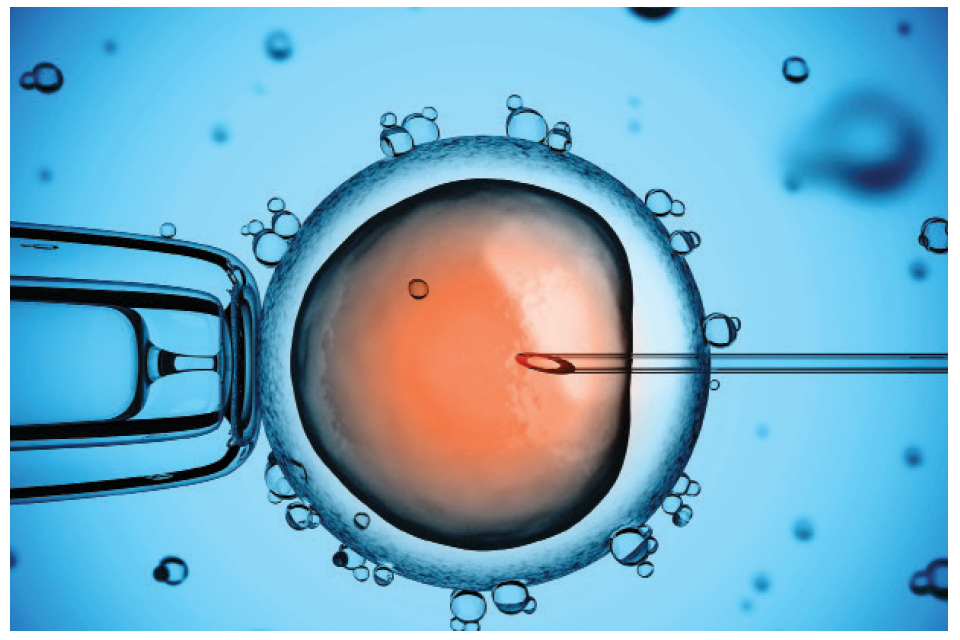Freeze! But Only If You Want To

What is infertility (in women)?
The inability to get pregnant after one year of trying (or six months if a woman is 35 or older). Women who can get pregnant but are unable to stay pregnant may also be infertile.
About 10 percent of women (6.1 million) in the United States ages 15 to 44 have difficulty getting pregnant or staying pregnant, according to the Centers for Disease Control and Prevention (CDC).
Fertility clinics across the country are making great strides in providing and developing more ways to help women have healthy pregnancies. Here in Austin, there are plenty of health centers offering resources to women who are considering alternative approaches to become pregnant. One such clinic is Dr. Kaylen Silverberg’s team at the Texas Fertility Center, specializing in infertility treatment for over 30 years with a mission to help their patients achieve their dreams of having a baby.
Lately in the United States, both the desire to delay pregnancy and the age of first birth have begun to increase steadily. Many women are holding off on having children until their late 30’s and 40’s–a time in which infertility and miscarriage rates become higher. Because of that risk, some women have chosen to freeze their eggs early on to help control their reproductive future, at the stages of highest fertility. Egg freezing, a process similar to in-vitro fertilization, allows a woman to preserve her generative capacity so she can start a family when the time is right.
Up to 20 weeks before birth, a baby in the mother’s womb has already begun to produce an abundance of eggs. From the time a woman births a child to when she hits menopause, the number of eggs her body produces continually decreases. “A woman can freeze her eggs as early as puberty if she is undergoing circumstances that may prevent her from getting pregnant in the future,” says Dr. Silverberg.
With an increase in age comes a decrease in egg quantity and quality. “By age 40, most women have already gone through 99.9 percent of their eggs,” says Dr. Silverberg. As a result, the earlier a woman decides to start this process, the better her chances are of having a healthy and successful pregnancy.
There are also a few medical factors that can determine a woman’s decision to freeze her eggs. For example, cancer treatments may put a woman at higher risk of ovarian damage and dysfunction, so if there were a genetic disease found commonly in a family tree, it could be wise for women to plan their pregnancies ahead of time. Should she save eggs and contract any type of cancer, she’d have the option to reproduce post-treatment. Surgery, endometriosis, or premature menopause are also possible obstacles for getting pregnant that can be avoided by planning ahead.
The freezing process is minimally invasive and has proven to help women preserve fertility successfully over the years. Once simulated, the eggs undergo a process of vitrification and are freeze dried at 400 degrees below zero. Vitrification is an ultra-rapid way to freeze eggs that produces higher rates of survival than a slow freezing process. By keeping the eggs at such a low temperature, they can stay frozen indefinitely, allowing the woman to feel at ease knowing the process is not rushed.
This medical procedure has evolved into a reliable method, yet the success rate for each patient still differs according to age and the techniques used by the particular clinic. “A woman can decide to freeze her eggs at any point in her life,” Dr. Silverberg says. “But the rate of success may decrease once a woman passes her early 40s due to the small number of eggs that are extracted.”
For those who are contemplating the procedure, it is equally important to find a trusted doctor and clinic with high victory numbers. When looking for a clinic, ask about the success rates of healthy babies born using embryonic freezing. This will ensure that a woman finds the best fit for her and her future family.






